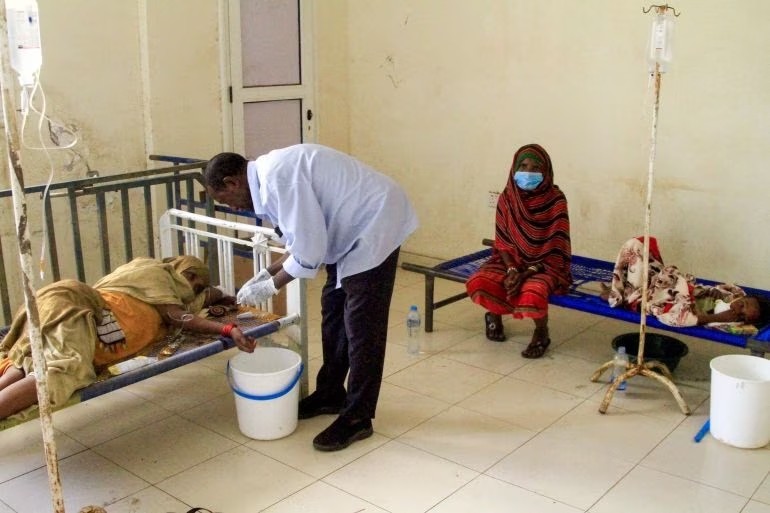
Owing to tainted drinking water and unfavourable weather, Haitham Mohamed Ibrahim has proclaimed a cholera pandemic.
Health officials said that a cholera outbreak in Sudan had killed almost two dozen individuals and affected hundreds more in recent weeks.
In a statement released on Sunday, Health Minister Haitham Mohamed Ibrahim claimed that at least 354 confirmed instances of cholera have been found in the war-torn nation in recent weeks, and that at least 22 people have died from the illness.
He announced the outbreak of cholera in Sudan on Saturday, citing “weather conditions and contaminated drinking water as the causes of the outbreak.”
Following the “discovery by the public health laboratory of the cholera virus,” he claimed, the decision was made in consultation with experts, United Nations organisations, and officials in the eastern state of Kassala.
In a media call on Friday, Margaret Harris, a representative of the World Health Organisation (WHO), stated that 11,327 cases of cholera with 316 fatalities had been documented in Sudan up to that point.
“We expect to have more than has been reported”, she added.
According to the WHO, cholera is a highly contagious, quickly progressing infection that causes diarrhoea. If left untreated, it can result in severe dehydration and even death in a matter of hours. It can be fatal without treatment in a matter of hours and is spread by consuming tainted food or drink. Youngsters under five are especially vulnerable.
In Sudan, cholera is a prevalent illness. In less than two months in 2017, a previous big outbreak resulted in at least 700 deaths and over 22,000 illnesses.
However, the disease’s outbreak is the area’s most recent disaster.
